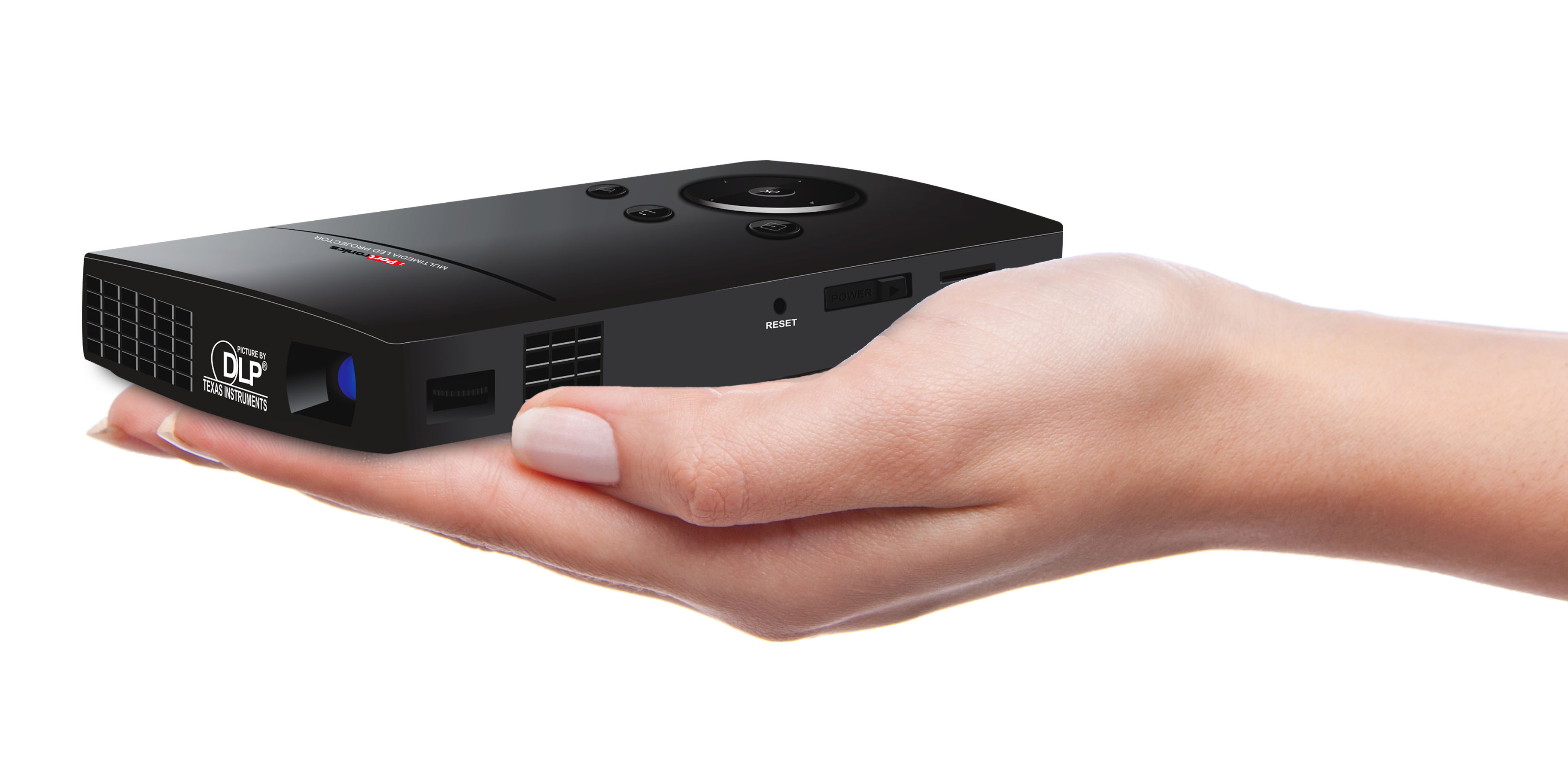Despite only being the size of a mobile phone Pico projectors are set to have a large impact on the mobile technology scene.
Also known as mobile or pocket projectors, pico projectors offer a solution to the problem of having mobile technology such as mobile phones and digital cameras with excellent image capture and storage capabilities but limited display abilities.
Pico projectors allow you to display large, high quality digital images from your phone or laptop while on the move with minimal set-up time or cabling involved.
Pico projectors are ideal for a wide selection of applications including picture or video browsing and gaming as they allow greater levels of interactivity.
They are however somewhat limited by the lower brightness when compared to small desktop data projectors.
As a result they can only be used effectively in low light environments.
Image sizes can be varied from as little as 13cm up to an impressive 3m (diagonal distance) from larger models.
About Pico Projectors
Pico projectors have evolved significantly since they first appeared on the audio visual market in 2006 with a selection of technologies available from a variety of manufacturers.
Platforms of Pico Projects
Currently the two most popular platforms in use are DLP and LCoS. Both use LEDs as the light source but whereas DLP uses mirrors to direct the light LCoS filters it via up to three LCD panels.
DLP technology is in use with a number of the biggest projector manufacturers including Optoma, LG and Samsung and although DLP projectors generally demonstrate higher contrast, better efficiency and lower power consumption when compared to LCoS units, they do have slightly lower resolution due to the use of mirrors to direct the light.
Other platforms such as laser-LCoS and laser-beam steering are also available which, as the name suggests, use lasers as the light source in place of LEDs.
Laser Pico projectors display the benefits of always being in focus and are bright and efficient but they do suffer from something known as speckle effect which manifests on the image as a scattering of shiny metallic-like dots.
Available Inputs to Pico Projectors
As Pico projectors are designed to be used with a wide variety of data source devices such as mobile phones, laptops, DVD players and cameras they are available with a selection of input types.
This can include more traditional connection types like VGA and RCA but certain units like WowWee’s Cinemin Swivel come complete with an adaptor to allow connection to the iPhone.
Other units also allow connection via HDMI and also Wi-Fi.
USB connection is also an option and has the benefit of providing both data and power supply.
Due to the small size of Pico projectors their battery life is limited to around an hour of continuous use and as such the ability to provide power via a USB can be a useful feature, particularly if you always have a USB port handy.
Overall Pico projectors may have some performance limitations due to their small size but this also proves to be their salvation.
They allow you to release all those images and videos stored on your phone or digital camera and effectively display them to more than just yourself.
Their low weight and small size allows them to be easily transported and their simple connectivity and operation means they can be rapidly employed with the minimum of set up time.
With the number of available Pico projectors, there is one available to fit virtually any budget with entry level models such as the Aiptek 43002 available for around £70 and more advanced models such as the Optoma Pico PK301 coming in at around £300.
